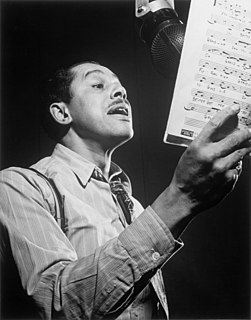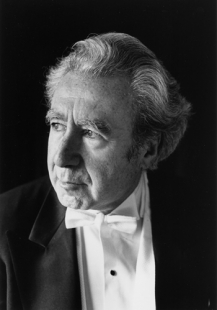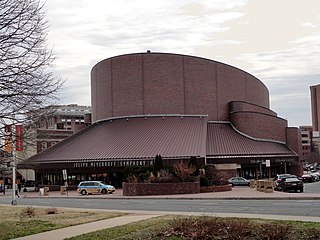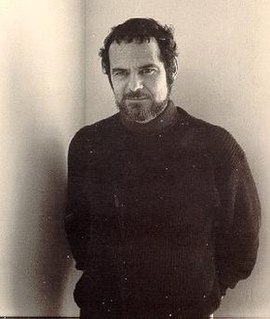Related Research Articles

Cabell "Cab" Calloway III was an American jazz singer, dancer, bandleader and actor. He was associated with the Cotton Club in Harlem, where he was a regular performer and became a popular vocalist of the swing era. His niche of mixing jazz and vaudeville won him acclaim during a career that spanned over 65 years.
Shulamit Ran is an Israeli-American composer. She moved from Israel to New York City at 14, as a scholarship student at the Mannes College of Music. Her Symphony (1990) won her the Pulitzer Prize for Music. In this regard, she was the second woman to win the Pulitzer Prize for Music, the first being Ellen Taaffe Zwilich in 1983. Ran was a professor of music composition at the University of Chicago from 1973 to 2015. She has performed as a pianist in Israel, Europe and the U.S., and her compositional works have been performed worldwide by a wide array of orchestras and chamber groups.
Maryland is a U.S. state with a musical heritage that dates back to the Native Americans of the region and includes contributions to colonial era music, modern American popular and folk music. The music of Maryland includes a number of popular musicians, folk styles and a documented music history that dates to the colonial archives on music from Annapolis, an important source in research on colonial music. Famous modern musicians from Maryland range from jazz singer Billie Holiday to pop punk band Good Charlotte, and include a wide array of popular styles.

Yuri Khatuevich Temirkanov is a Russian conductor of Circassian (Kabardian) origin.

David Zinman is an American conductor and violinist.

Hilary Hahn is an American violinist. She has performed throughout the world as a soloist with leading orchestras and conductors, and as a recitalist. She is a champion of contemporary music, and several composers have written works for her, including concerti by Edgar Meyer and Jennifer Higdon, partitas by Antón García Abril, and a violin and piano sonata by Lera Auerbach.

The Peabody Institute of The Johns Hopkins University (JHU) is a music and dance conservatory and university-preparatory school in the Mount Vernon-Belvedere neighborhood of Baltimore, Maryland, United States, facing the landmark Washington Monument circle at the southeast corner of North Charles and East Monument Streets.

Sergiu Comissiona was a Romanian-Israeli-American conductor and violinist.

The Baltimore Symphony Orchestra is an American symphony orchestra based in Baltimore, Maryland. The Baltimore SO has its principal residence at the Joseph Meyerhoff Symphony Hall, where it performs more than 130 concerts a year. In 2005, it began regular performances at the Music Center at Strathmore in Bethesda.

Marin Alsop is an American conductor and violinist. She is currently music director of the Baltimore Symphony Orchestra, as well as, chief conductor of the Vienna Radio Symphony Orchestra, and the Ravinia Festival. In 2020 she was elected to the American Philosophical Society.

The Lyric Performing Arts Center is a music venue in Baltimore, Maryland, United States, located close to the University of Baltimore law school. The building was modeled after the Concertgebouw concert hall in Amsterdam, and it was inaugurated on October 31, 1894, with a performance by the Boston Symphony Orchestra and Australian opera singer Nellie Melba as the featured soloist. Beginning in 1904, it was also used for touring performances by the Metropolitan Opera, and from 1950, it was the home of the Baltimore Opera Company until that company's liquidation in 2009.
The music of Baltimore, the largest city in Maryland, can be documented as far back as 1784, and the city has become a regional center for Western classical music and jazz. Early Baltimore was home to popular opera and musical theatre, and an important part of the music of Maryland, while the city also hosted several major music publishing firms until well into the 19th century, when Baltimore also saw the rise of native musical instrument manufacturing, specifically pianos and woodwind instruments. African American music existed in Baltimore during the colonial era, and the city was home to vibrant black musical life by the 1860s. Baltimore's African American heritage to the start of the 20th century included ragtime and gospel music. By the end of that century, Baltimore jazz had become a well-recognized scene among jazz fans, and produced a number of local performers to gain national reputations. The city was a major stop on the African American East Coast touring circuit, and it remains a popular regional draw for live performances. Baltimore has produced a wide range of modern rock, punk and metal bands and several indie labels catering to a variety of audiences.

The Joseph Meyerhoff Symphony Hall, often referred to simply as the Meyerhoff, is a music venue that opened September 16, 1982, at 1212 Cathedral Street in the Mount Vernon neighborhood of Baltimore, Maryland, United States. The main auditorium has a seating capacity of 2,443 and is home to the Baltimore Symphony Orchestra. It is named for Joseph Meyerhoff, a Ukrainian-Jewish Baltimore businessman, philanthropist, and arts patron who served as president of the Baltimore Symphony from 1965 to 1983.
Christopher Chapman Rouse III was an American composer. Though he wrote for various ensembles, Rouse is primarily known for his orchestral compositions, including a Requiem, a dozen concertos, and six symphonies. His work received numerous accolades, including the Kennedy Center Friedheim Award, the Grammy Award for Best Classical Contemporary Composition, and the Pulitzer Prize for Music. He also served as the composer-in-residence for the New York Philharmonic from 2012 to 2015.

Stephen Joel Albert was an American composer.
Metropolis Symphony for Orchestra (1988–93) by American composer Michael Daugherty is a five-movement symphony inspired by Superman comics. The entire piece was created over the span of five years with separate commissions for each movement. Individual movements may be performed separately; however, it is preferred that the 41 minute symphony be performed in its entirety. MetropolisSymphony was premiered by the Baltimore Symphony Orchestra, David Zinman conducting, in January 1994, at the Meyerhoff Concert Hall in Baltimore, Maryland.

The Earl and Darielle Linehan Concert Hall, previously known as the UMBC Concert Hall is the main theater of the University of Maryland, Baltimore County campus in Baltimore, Maryland. The theater is located in the Performing Arts and Humanities Building, the university's home for Ancient Studies, Dance, English, Music, Philosophy, and Theatre departments. The theater is the designated concert hall for the university's symphony orchestra and other ensembles.

Pokémon: Symphonic Evolutions was a series of official musical concerts presented by The Pokémon Company and produced by Pirnceton Entertainment, featuring the music of the Pokémon series.

Wallace Leon Jones was an American jazz trumpeter.
Berceuse Infinie is an orchestral composition by the American composer Christopher Rouse. The work was commissioned by the Baltimore Symphony Orchestra and was completed on July 1, 2016. It was first performed by the Baltimore Symphony Orchestra under the direction of Marin Alsop at Joseph Meyerhoff Symphony Hall on November 30, 2017. The piece is dedicated to Marin Alsop.
References
- Baltimore Sun [ permanent dead link ]
- Schaaf, Elizabeth. "The Storm Is Passing Over". Peabody Institute. Archived from the original on December 14, 2012. Retrieved March 23, 2008.